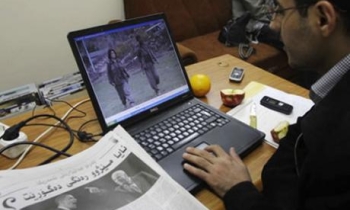A "spying" bill that would allow the Zimbabwean government to intercept mail, phone calls and emails without having to get court approval has been signed into law by President Robert Mugabe.
Under the "Interception of Communications" law, service providers will be forced to install "enabling equipment" on behalf of the government, which would allow senior intelligence, police and revenue officials to intercept telephone, email and cell phone messages through a newly created central monitoring agency. The Act also provides for the establishment of a monitoring centre.
The Media Institute of Southern Africa (MISA) called August 3, the day the law was signed, a "sad day for Zimbabweans." MISA Zimbabwe Chairperson Loughty Dube said, "The government has refused to open the airwaves, closed newspapers and, as if that is not enough, it now wants to pry into people's conversations. This is simply an indication of a government that is afraid of its own citizens."
An interception warrant, to be issued by the Minister of Transport and Communications, may be applied for by the Chief of Defence Intelligence, the Director-General of the Central Intelligence Organisation, the Commissioner of Police, the Commissioner General of the Zimbabwe Revenue Authority or any of their nominees.
Service providers, among them Internet Service Providers (ISPs), are required to install systems that are "technically capable of supporting lawful interception at all times." ISPs will not have long to comply with this law as the Act clearly states that regulations to this effect will be issued within two months of the commencement of this Act.
Independent journalists say the law is intended to close a loophole in an already oppressive reporting environment. As Zimbabwe has become more restrictive of the media, a greater number of Zimbabwean journalists send their reports to international media outlets and online publications based outside the country. The lawful interception of communications could expose investigative reporters and create a climate of fear, said Zimbabwe Union of Journalists President Matthew Takaona.
“This surveillance law further cuts Zimbabwe off from the world and creates an even more oppressive environment than ever for the press,” said Committee to Protect Journalists (CPJ) Executive Director Joel Simon. “The international community needs to be aware that Zimbabwe is attempting to suppress any remaining press freedom in its country. Urgent action is required.”
"The promulgation of this law is further evidence of Mugabe’s desire to keep news and information under close control," Reporters sans Frontières (RSF). "Zimbabwe had already given itself one of the world’s most repressive legislative arsenals as regards press freedom. Now all forms of communication have been placed under surveillance."
While the law troubles reporters at SW Radio Africa, a UK-based independent broadcaster founded in December 2001 by uprooted Zimbabwean journalists, it would not deter the station, manager Gerry Jackson told CPJ. The broadcaster offers news headlines via SMS to a growing audience of about 5,000 mobile phone users in Zimbabwe, she said. The station also circulates transcripts of interviews via e-mail to the Zimbabwean diaspora.
In June 2006, the station reported that its medium-wave broadcasts into Zimbabwe had been jammed. There had been a similar scrambling of its short-wave broadcasts in 2005. The government denied that it had interfered, but in February it admitted to jamming Washington-based Studio 7, produced by Voice of America and staffed by uprooted Zimbabwean journalists. “We cannot allow foreigners to invade our airwaves without our authority,” MISA quoted Deputy Minister of Information and Publicity Bright Matonga as saying.
The law also threatens to undermine local journalists who clandestinely report for independent Internet-based publications, Takaona said. Several Internet news sites have flourished in recent years as alternative sources of information in response to the government’s strict accreditation regime. Under the 2002 Access to Information and Protection of Privacy Act, journalists can already be sentenced for up to two years in prison for practicing journalism without a licence.
A journalist of South Africa-based Zimbabwean news website ZimOnline told CPJ the measures have been designed to create fear. ZimOnline reporters in Zimbabwe use email pseudonyms to file stories and conceal their identities when calling government officials for comments, he said.
Local rights group Zimbabwe Lawyers for Human Rights is considering challenging the legislation in court, acting director Irene Petras told CPJ. Zimbabwe’s Supreme Court had previously ruled unconstitutional similar legislation granting the government sweeping powers to monitor communications that threaten national security when it struck down in 2004 the Posts and Telecommunications Act, according to news reports.









